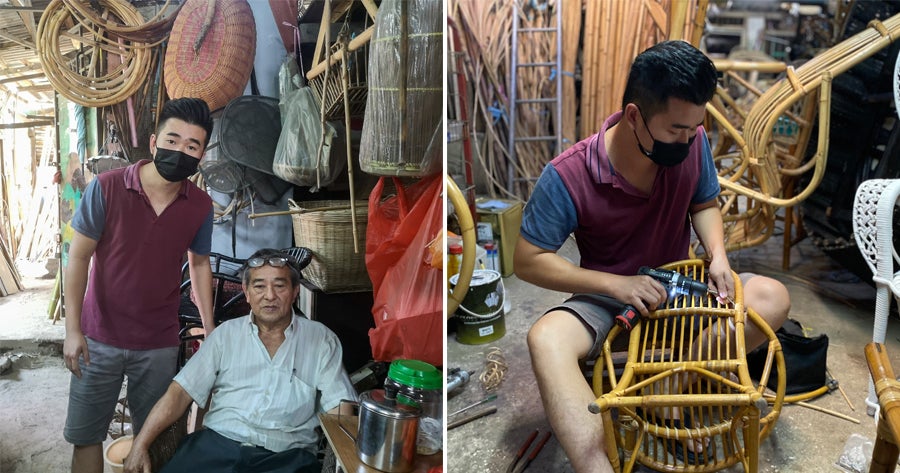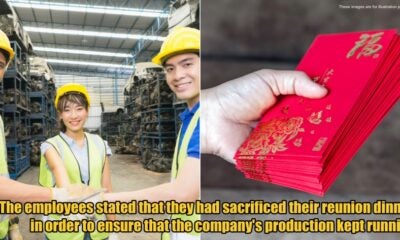Disclaimer: This feature story was written by Kok Le Jye & Ng Xin Ying for their Professional Media Workshop module at Taylor’s University.
When people look at this old shop, they would not know that it is a long-standing, hidden gem in Klang city’s – Rotan Asli Enterprise that is rich in craftsmanship and full of rattan stories to be discovered.
Just opposite Kwang Hua Private High School in Klang, a hidden and long-established rattan specialty shop stands, right under the big trees and bamboos since the 1980s. Despite being hidden from the public’s sight, it is a well-known rattan shop among the Klang community. Even though it is small in scale, this rattan specialty shop sells all kinds of rattan products, providing customisation services and repair services.
Rotan Asli Enterprise is currently run by Low Poh Ping, the second-generation owner who is only 32 years old. He inherited his father’s business, continuing his family’s traditional craftsmanship.
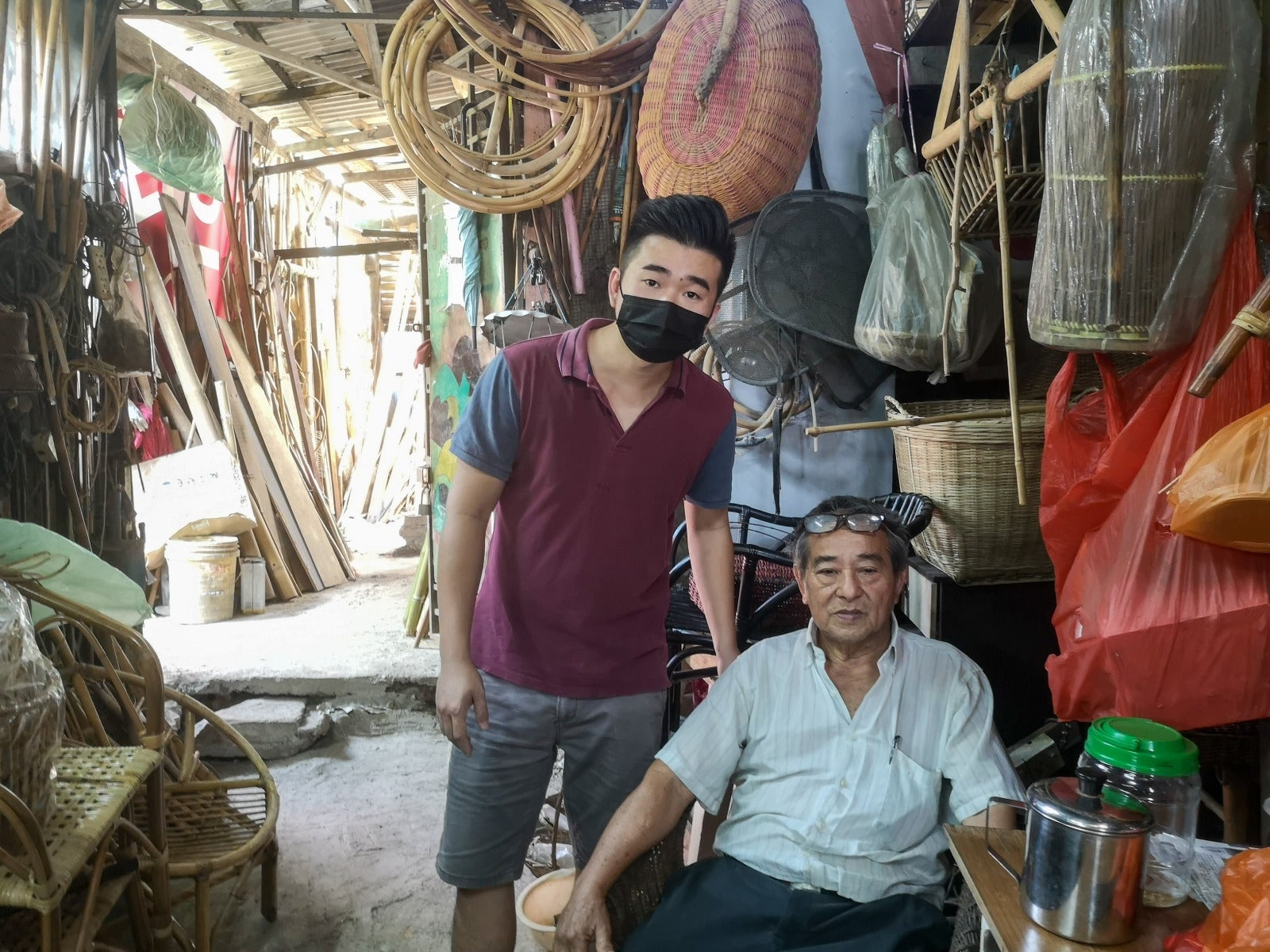
“I see the value in rattan products, it can be passed down from grandparents generations to grandchildren, it holds invaluable memories. To me, rattan is a natural asset gifted by nature,” Poh Ping said.
“I always uphold the values of the traditional craft business as it shapes and builds our cultural identity. I’m proud to say that I appreciate this craftsmanship. Every single rattan product I made is fully by my hands, with no involvement of technology. I feel very accomplished whenever I finish a product, and it is the reason why it pushes me until now.”
“To learn how to make a rattan product, it’s very time consuming, the different thicknesses of rattans and parts play different functions, each rattan product is a test of the craftsman’s skills. No one is willing to spend days to weeks just to make one chair when you have the technology to make it within a few hours.”
Rotan Asli
Upon sharing the inspiration behind the name of the shop, Poh Ping said it has a very straightforward meaning.
“Rotan is rattan in Bahasa Melayu, and it’s what our business revolves around. For Asli, it is because we get our rattan supply from the Orang Asli.”
Poh Ping also mentioned that the production of rattan products does not just rely on craftsmanship, but the supply of rattan from the Orang Asli is equally essential.
“It’s a hazardous and risky task to get the rattan, it’s heavy, and you will need to climb high. That’s why I appreciate and treat every single rattan product carefully,” Poh Ping remarked.
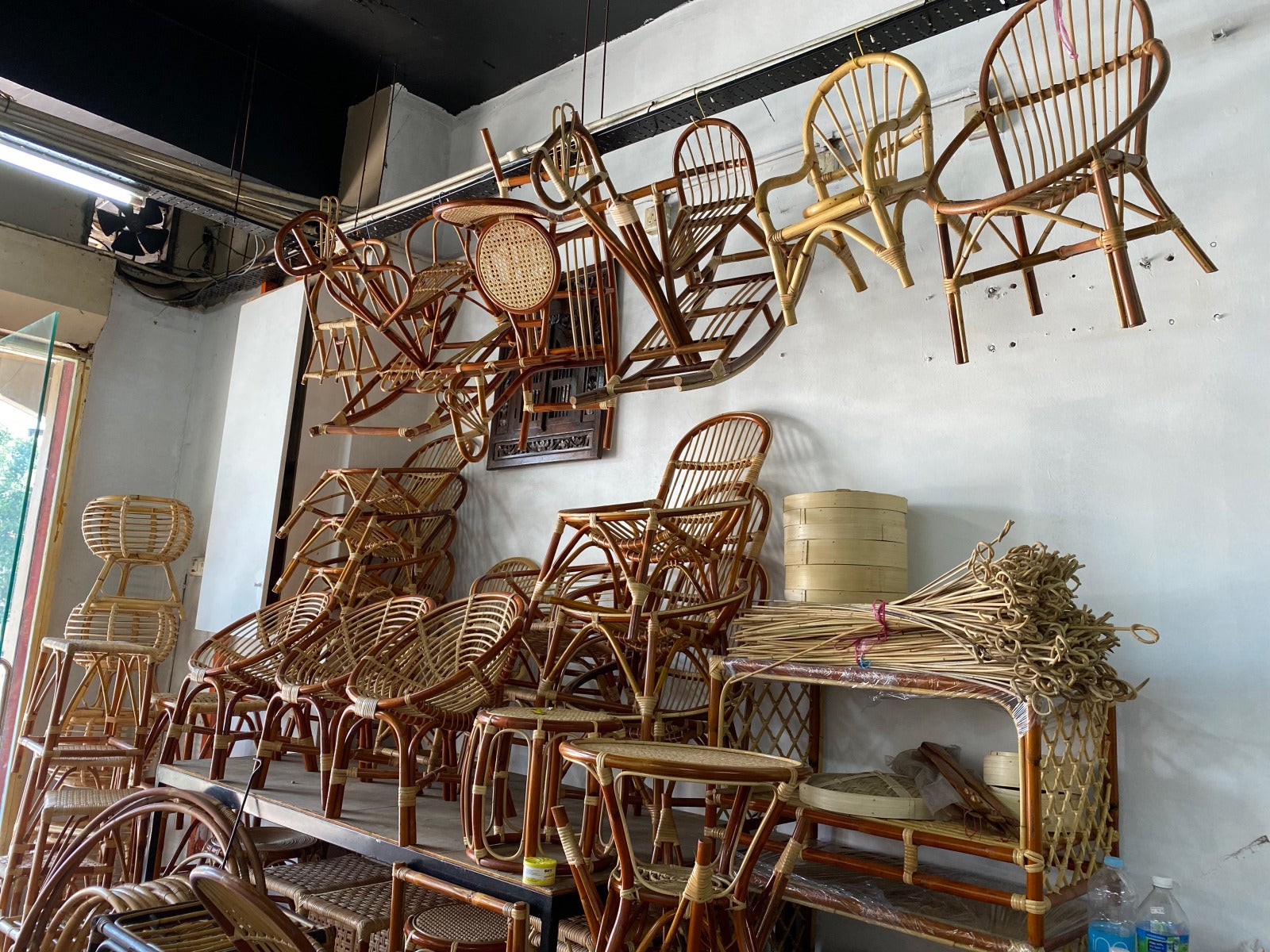
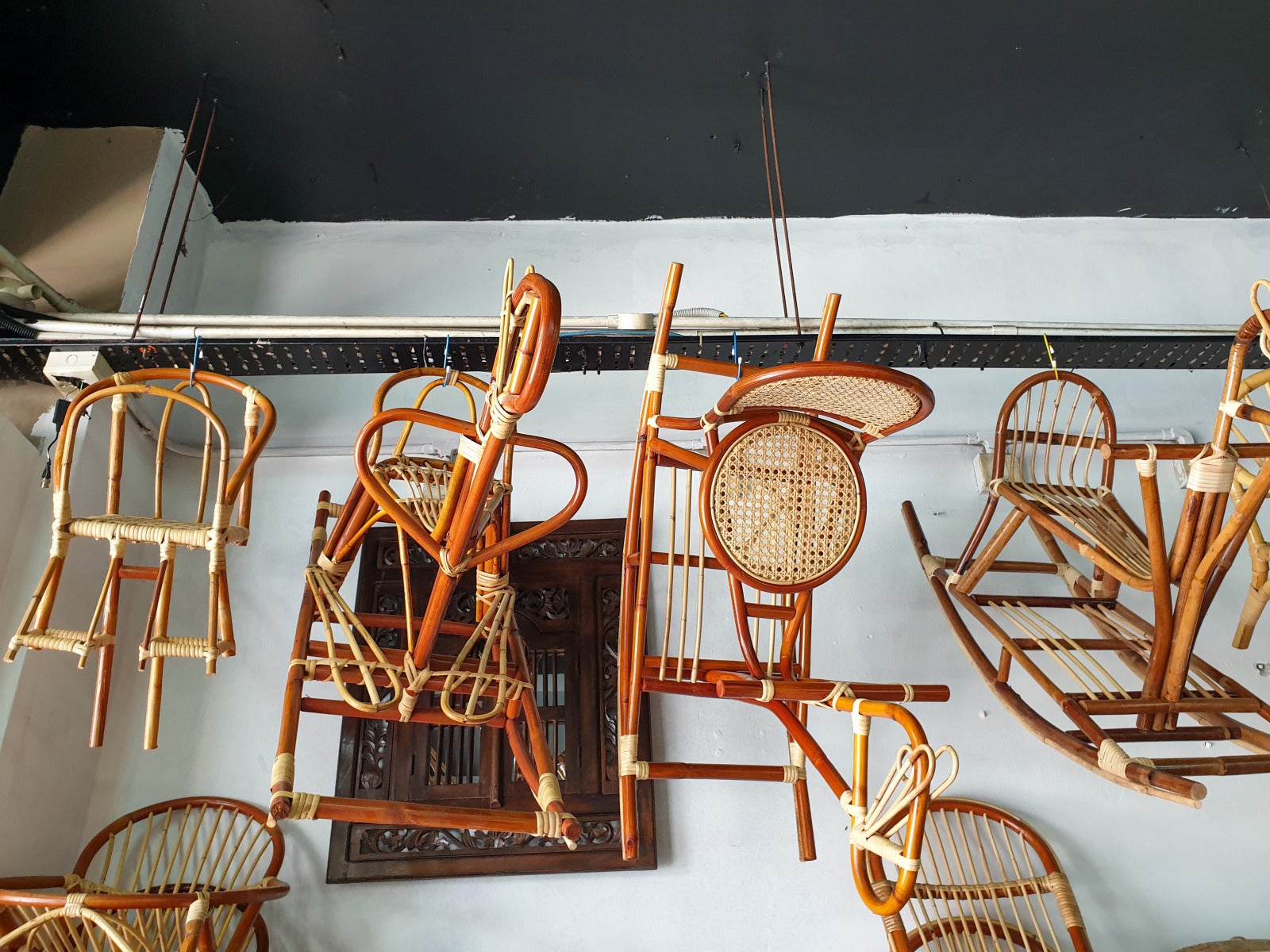
Journey of making rattan
At the beginning of Poh Ping’s journey, his earliest memories of making rattan traces all the way back to when he was still young in his primary school days when he would always rush to his father’s shop after school. At first, he helped out his father as it was a family business and he thought it was normal to do so. Slowly, he figured out and mastered the technique of making rattan himself.
Although it was not all smooth sailing, his father always reminded him to be persistent in everything he does, not only in making rattan but in life. Those words were deeply imprinted in his heart till today.
Out of his five siblings, only two chose to inherit his father’s rattan craftsmanship. Some of them chose to do informative technology, others chose to do advertising. He understands that it is a deep calling in his life to make rattan and he is determined to preserve this rattan tradition.
“To me making rattan is not just a business anymore, it is part of my life, my persistence, and the mission to bring the rattan tradition into a better place,” said Poh Ping.
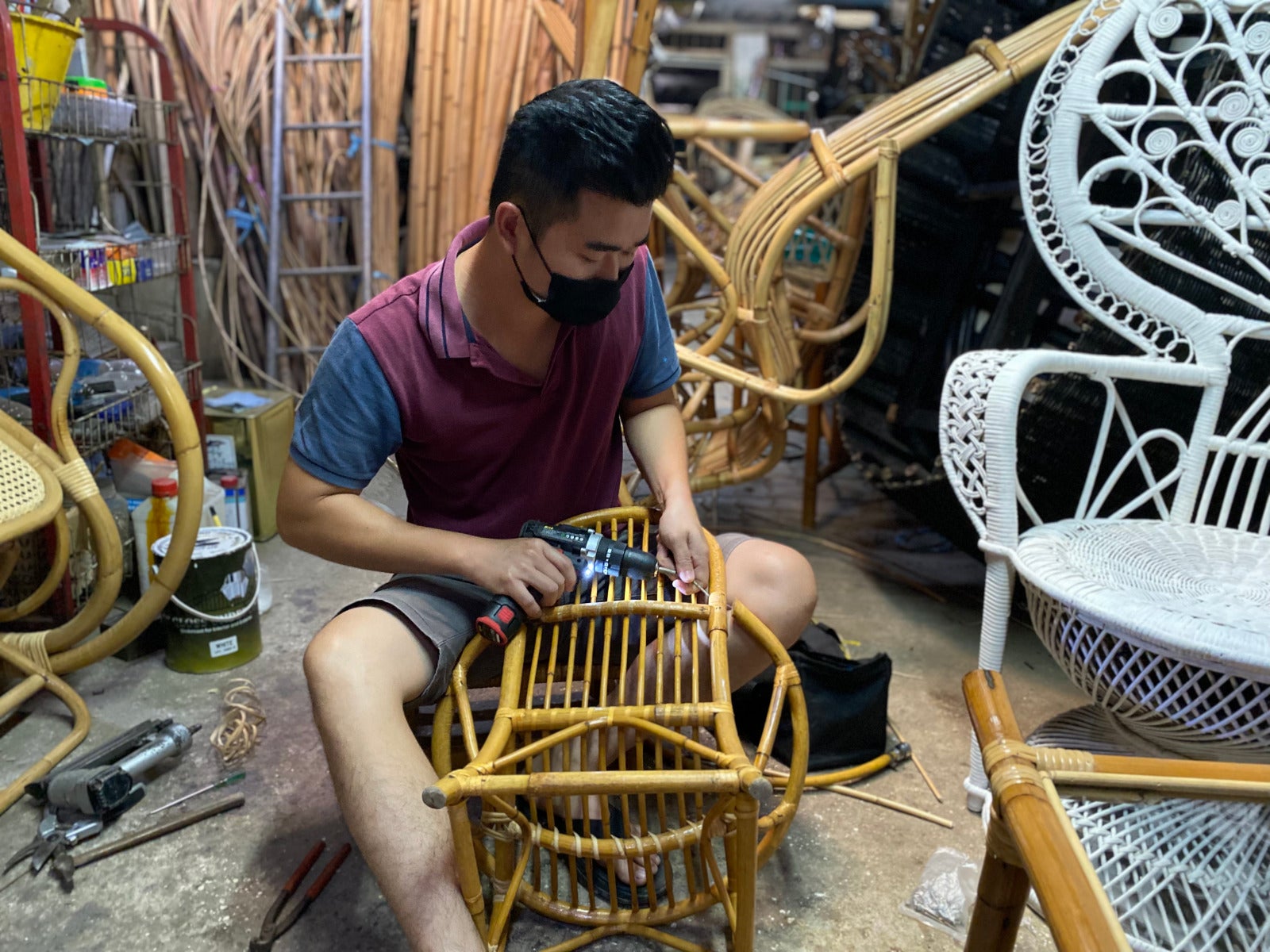
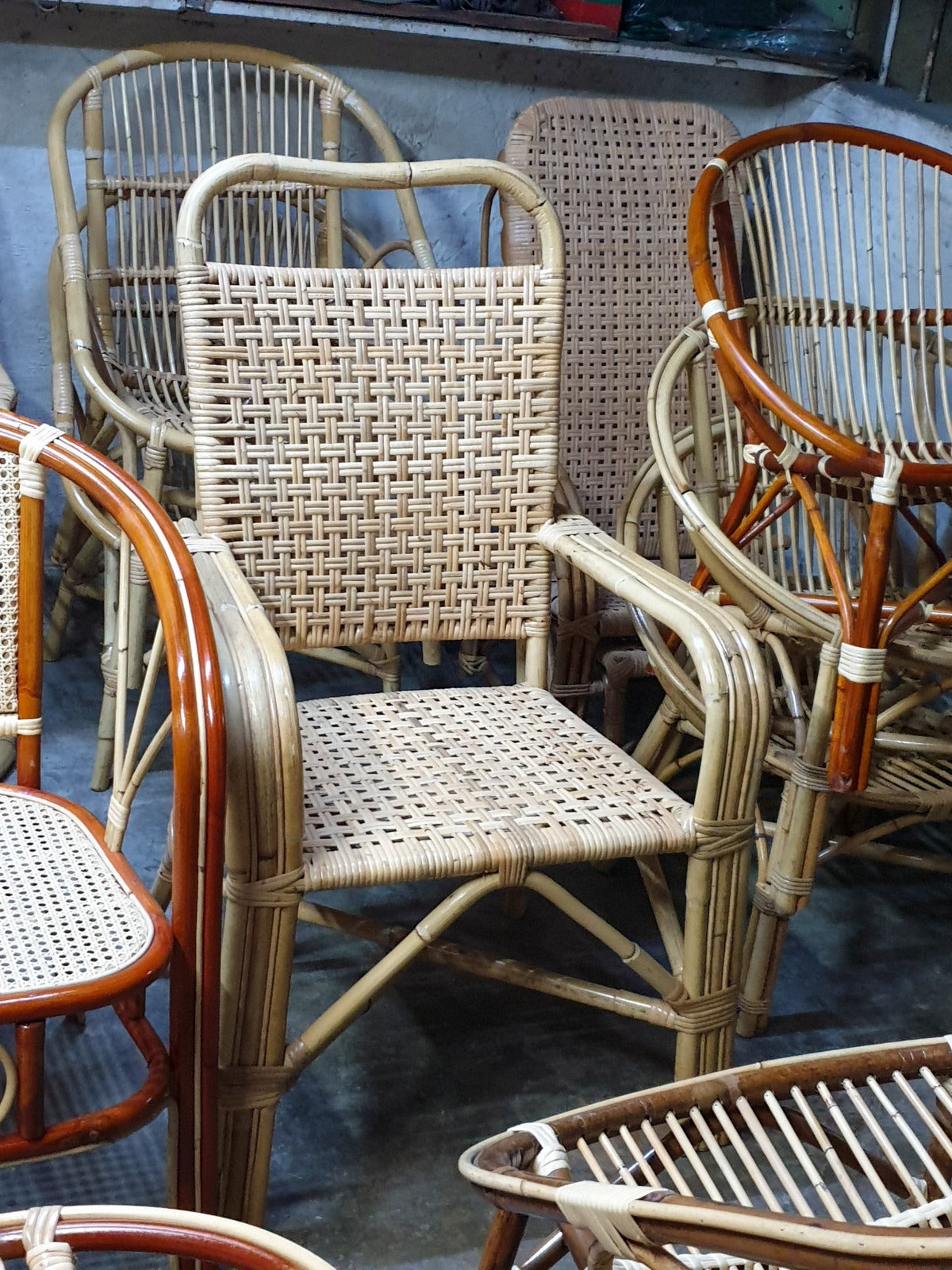
More than just rattan
Fast forward to 2021, Poh Ping has been making rattan for more than 25 years, but one thing that has not changed is his passion for making rattan. Rattan making is one of the most neglected traditions nowadays with very few people who appreciate the craft.
People nowadays want to have the end product fast and ready, but the process of making rattan is the total opposite. Poh Ping believes that although the craft takes time, he is sure about the quality and how long the rattan will last.
“I remember an old lady customer once came with a broken chair that was passed down from many generations that she tried to fix but could not. I helped her to fix the chair with rattan and it felt more than just fixing furniture, but a family heritage,” he said.
Poh Ping said that that experience is one of the reasons that keep him helping customers. He also emphasised that the special aspect of rattan is that it can mould and endure devastation and fit in anywhere despite the condition.
Besides repairing old furniture, he also worked hard to come up with unique and innovative products to keep up with the demand and help in creating new memories for his customers. One of his proudest projects would be a big tent he made for a kindergarten.
Halfway into making the tent, Poh Ping wanted to give up as it was harder than he thought. However, he pushed those thoughts away and spent one month finishing the tent as he wanted the design of the tent to be more modern and safe for kids to use.
“After a few months, I passed by the kindergarten and saw the kids happily playing around the tent I made, everything was worth it. Because those innocent and naive smiles on their faces are priceless and worth more than anything in the world,” said Poh Ping.
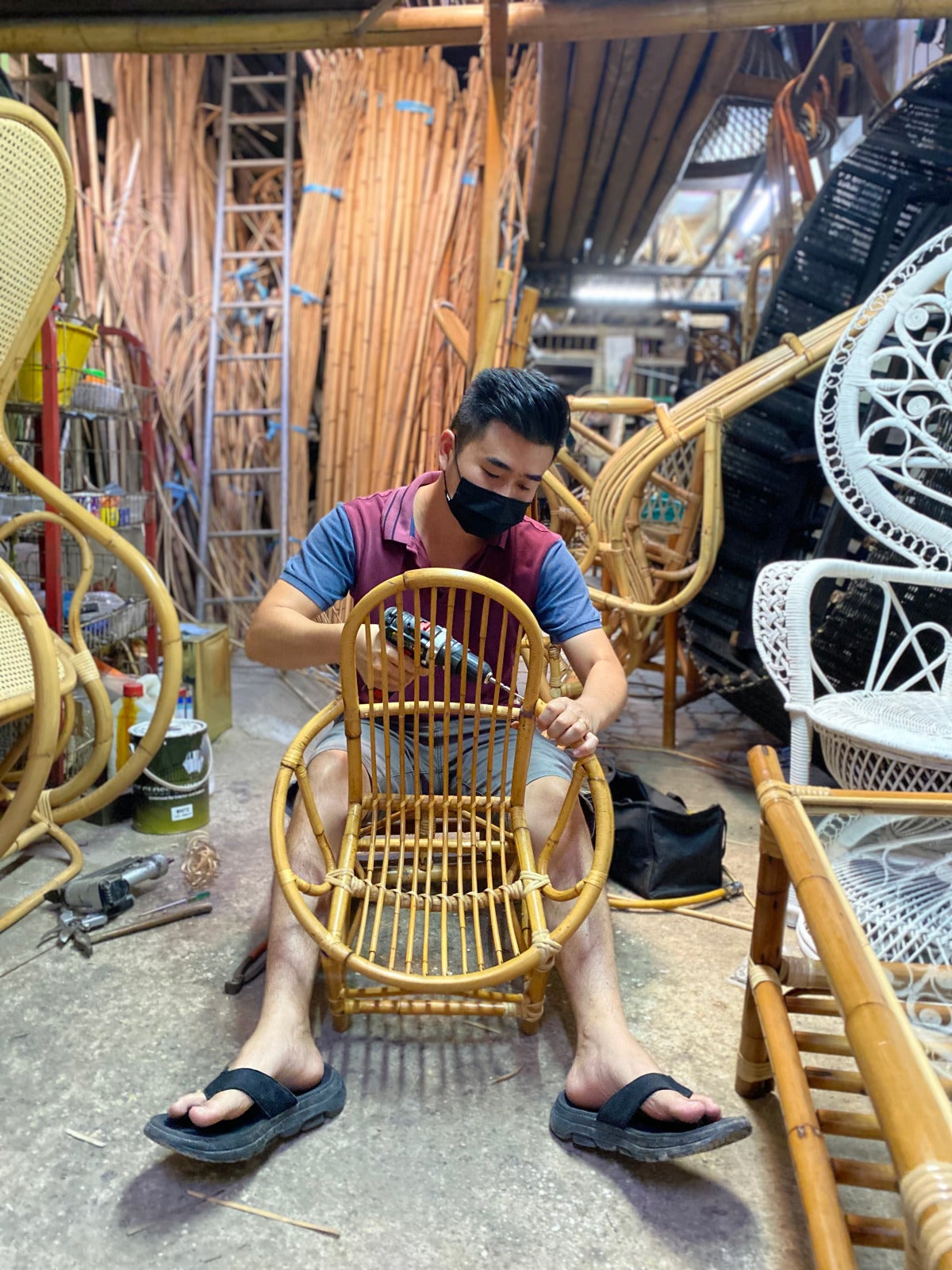
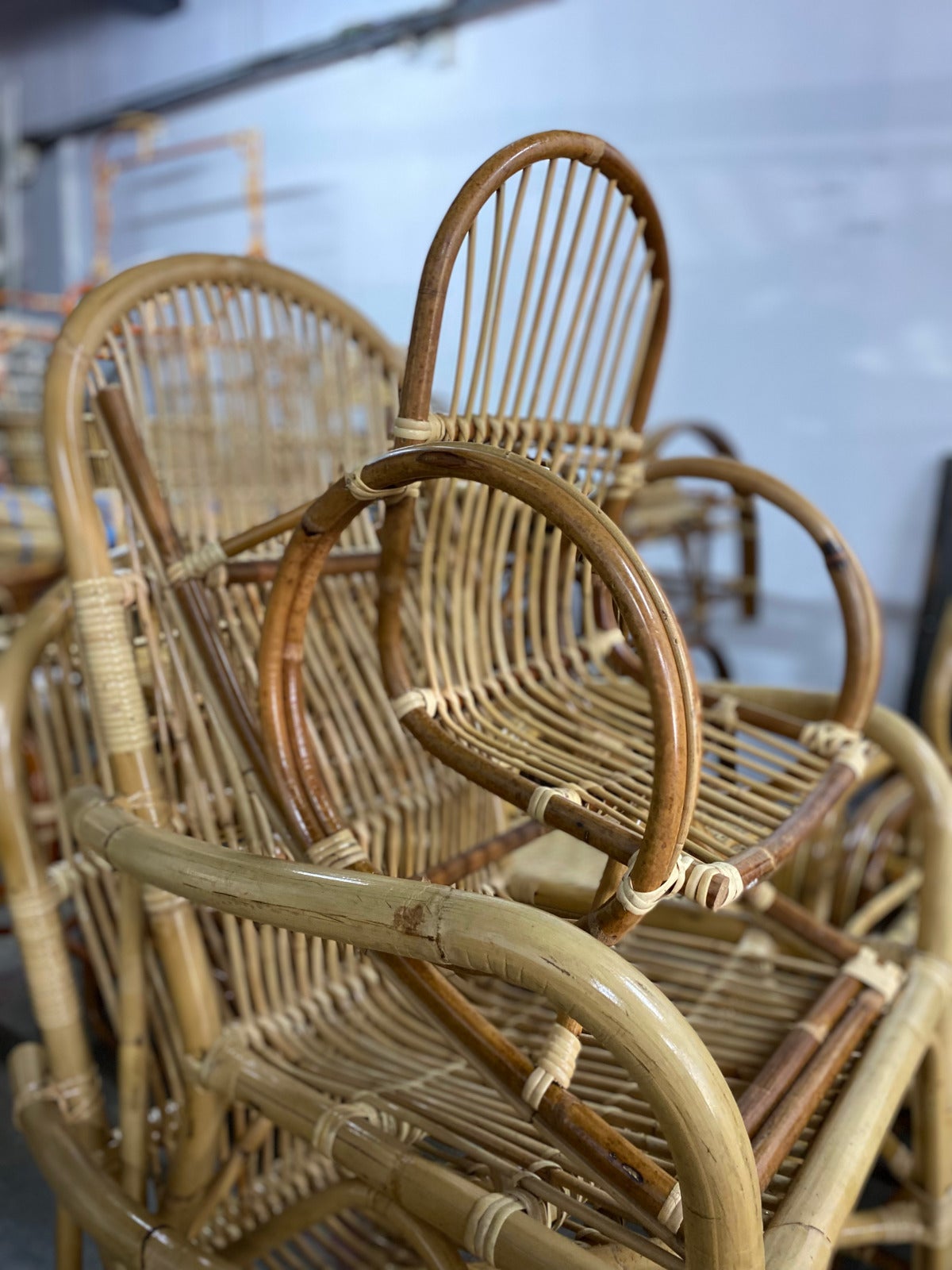
Surviving through the pandemic
It is no surprise that many small businesses, including Rotan Asli Enterprise, have been severely impacted since the outbreak of the pandemic. Rotan Asli has been trying its best to survive through different phases of movement control order for the past year. However, the recent Full Movement Control Order (FMCO) has caused extra difficulties to the business.
“To be frank, Rotan Asli was a humble physical-business-only store pre-covid, as we were unfamiliar with technology. However, due to ongoing restrictions in operations, we had to advance in order to join the e-commerce bandwagon. Now, we are open to online orders through our Facebook page at Rotan Asli Enterprise.” Poh Ping said.
“Another struggle is that our rattan suppliers, the Orang Asli, have repeatedly put our orders on hold to protect their community from infection,” Poh Ping said. Till today, Rotan Asli lacked rattan supplies for mass production. Despite this, Poh Ping works diligently to make the best out of every piece in order to limit rattan waste in his furniture production for a sustainable cause.
“My passion for the family business is going strong and I will continue to work hard in keeping Rotan Asli’s years of business alive. I hope that the local community could support my family efforts in preserving the rattan tradition,” said an optimistic Poh Ping.
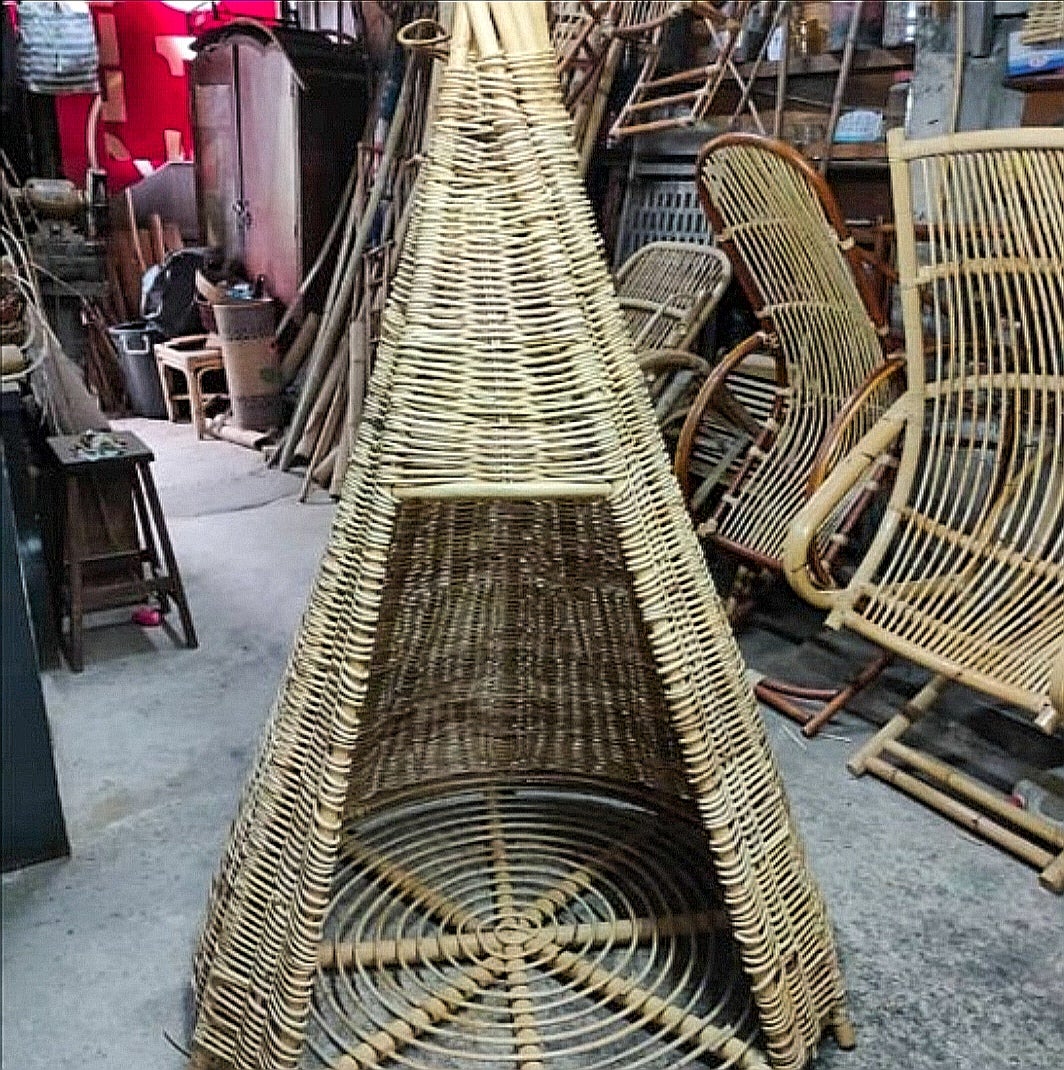
Future of rattan handicrafts
The demand for rattan furniture has been following an upward trend over recent years. More Malaysians in this generation are incorporating rattan into their home décor for its timeless chic natural design and long-lasting quality. Rattan furniture can be found in many cafes in Malaysia as well.
Perhaps it is also due to the current decline of rattan businesses that people are beginning to appreciate the aesthetics and craftsmanship quality in rattan products. If they stop supporting it, it might be difficult to find this type of valuable furniture in the near future.
Poh Ping sees great potential in the future of rattan handicrafts and hopes to grow his small business bigger to a national scale.
“I intend to continue my father’s rattan business for as long as I can and hopefully pass down the family’s legacy to my children. I hope that our rattan tradition can be preserved for future generations to learn about and admire.” Poh Ping remarked.
Also read: 38 Wives, 89 Kids, 36 Grandkids, Alleged Father Of ‘World’s Largest Family’ Dies Aged 76

